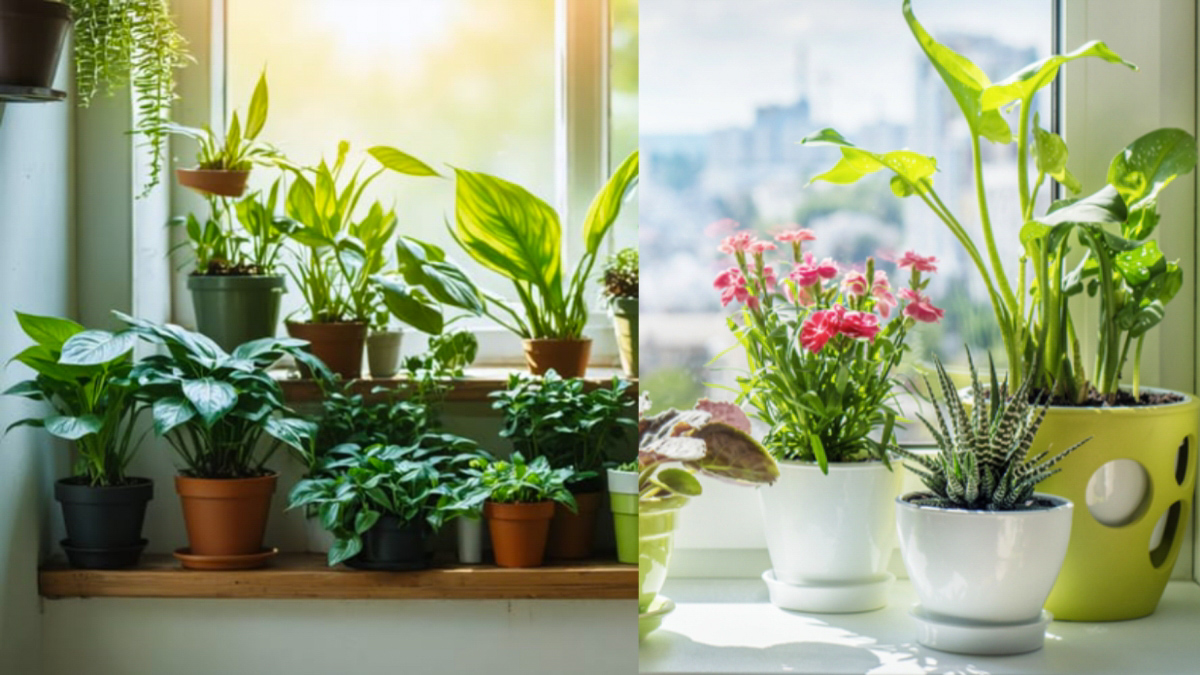Fresh, crisp lettuce — anytime you want it, right from your kitchen or balcony. Sounds like a dream? With indoor gardening, you can grow lettuce year-round regardless of the season. Whether you live in a small apartment or just want to reduce trips to the grocery store, this guide will walk you through everything you need to know to cultivate lush, healthy lettuce indoors.
🌱 Why Grow Lettuce Indoors?
Lettuce is one of the easiest and fastest-growing vegetables, making it perfect for indoor gardening. Here’s why it’s ideal:
- Quick Harvest Time – Many varieties are ready in 30–45 days.
- Compact Growth – Requires minimal space, ideal for apartments.
- Cool-Loving Crop – Thrives indoors where temperatures are consistent.
- Cost-Effective – A few seeds can yield months of fresh greens.
🥬 Best Lettuce Varieties for Indoor Gardening
Some types of lettuce perform better indoors than others. Choose varieties that are compact, fast-growing, and heat-tolerant for best results.
🏆 Top Lettuce Varieties for Indoors:
- Butterhead (e.g., Bibb, Boston) – Soft, tender leaves; compact growth.
- Romaine (e.g., Little Gem) – Upright growth, great for small spaces.
- Looseleaf (e.g., Salad Bowl, Black Seeded Simpson) – Quick harvest, easy to grow.
- Oakleaf – Delicate leaves with beautiful texture and color.
👉 Pro Tip: Avoid iceberg lettuce — it takes longer to grow and needs more space.
🧰 What You Need to Get Started
Indoor lettuce gardening doesn’t require fancy gear. You can start small and scale as you learn.
✅ Supplies Checklist:
- Containers (6–8 inches deep with drainage holes)
- Potting Mix (lightweight, organic, and well-draining)
- Grow Lights (LEDs or full-spectrum if no sunlight is available)
- Seeds (non-GMO and preferably organic)
- Watering Can or spray bottle
- Tray or saucer (to catch excess water)
🌞 Light Requirements: Natural or Artificial?
Lettuce needs 12–14 hours of light daily. If your home doesn’t get enough sunlight, LED grow lights are a perfect solution.
🌤 Natural Light Tips:
- Place near a south-facing window.
- Rotate containers every few days for even growth.
💡 Grow Light Tips:
- Use full-spectrum LED lights (5000–6500K).
- Keep lights about 6–8 inches above plants.
- Set on a timer for 12–14 hours a day.
🌿 Step-by-Step: How to Grow Lettuce Indoors
1. Choose the Right Container
Pick a wide, shallow container with good drainage. You can reuse plastic bins, window boxes, or even repurposed trays.
2. Prepare the Potting Mix
Use a light, fluffy mix rich in organic matter. Avoid heavy garden soil, which can lead to poor drainage and root rot.
3. Sow the Seeds
Sprinkle seeds evenly and lightly cover with 1/4 inch of soil. Keep the soil moist but not soggy.
4. Maintain Proper Moisture
Lettuce loves consistent moisture. Water when the top inch of soil feels dry. Avoid overwatering to prevent mold or damping-off.
5. Provide Adequate Light
Whether sunlight or LEDs, make sure your lettuce gets at least 12 hours of bright light daily.
6. Thin the Seedlings
Once seedlings are about 2 inches tall, thin them by snipping smaller plants to give space to stronger ones.
💧 Watering and Humidity Tips
- Water gently to avoid disturbing roots.
- Use a spray bottle for misting young seedlings.
- Keep the humidity around 40–60% to prevent leaves from drying out.
💡 Soil vs Hydroponics: Which is Better for Lettuce Indoors?
Both soil and hydroponic systems work well for growing lettuce indoors, but each has pros and cons.
| Method | Pros | Cons |
|---|---|---|
| Soil | Easy to set up, natural nutrients | Heavier, may attract pests |
| Hydroponics | Faster growth, clean setup | Initial setup cost, more monitoring |
🧪 Recommended Hydroponic Systems for Lettuce:
- Kratky Method – Low-maintenance, no pumps needed.
- Deep Water Culture (DWC) – Great for beginners.
- NFT Systems – Best for continuous lettuce harvests.
🐛 Common Problems & How to Solve Them
Even indoors, lettuce can face some issues. Here’s how to deal with them:
🍂 Yellow Leaves
Cause: Overwatering, poor drainage
Fix: Let soil dry slightly between waterings.
🐜 Pests (Aphids, Fungus Gnats)
Cause: Excess moisture or open windows
Fix: Neem oil spray, sticky traps, or rinse leaves with water.
🥀 Leggy Seedlings
Cause: Not enough light
Fix: Move closer to a light source or increase light hours.
✂️ Harvesting Lettuce Indoors
You can start harvesting baby greens in as little as 3 weeks!
🌿 Harvest Methods:
- Cut-and-come-again: Snip outer leaves 1 inch above the base and let the plant regrow.
- Full harvest: Uproot the entire plant when it’s mature (about 4–6 inches tall).
With staggered planting, you can enjoy fresh lettuce every week.
📌 Bonus Tips for Year-Round Indoor Lettuce
- Stagger Planting: Sow new seeds every 10–14 days for a continuous harvest.
- Use Vertical Space: Tiered racks or wall-mounted planters save floor space.
- Fertilize Gently: Use a diluted organic liquid fertilizer every 2–3 weeks.
- Watch Temperatures: Keep your grow area between 60–70°F (15–21°C).
❓ FAQs
Can I grow lettuce indoors without sunlight?
Yes! With a full-spectrum LED grow light, lettuce can thrive indoors without natural sunlight.
How long does it take to grow lettuce indoors?
Baby greens are ready in 3 weeks, and mature heads can take 4–6 weeks.
What’s the best container for growing lettuce indoors?
Shallow, wide containers (6–8 inches deep) with good drainage are ideal.
Do I need to fertilize lettuce grown indoors?
Yes, use a mild organic liquid fertilizer every few weeks to keep plants healthy.
🌟 Final Thoughts
Growing lettuce indoors year-round is a rewarding way to enjoy fresh, pesticide-free greens right from your kitchen. With the right tools, lighting, and care, anyone — even a complete beginner — can succeed. Whether you choose soil or hydroponics, butterhead or romaine, the result is the same: delicious, crisp lettuce at your fingertips, every season.
So why wait? 🌿 Start your indoor lettuce garden today!


1 thought on “Indoor Gardening 2025: Grow Lettuce Year-Round”